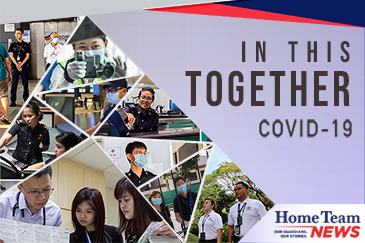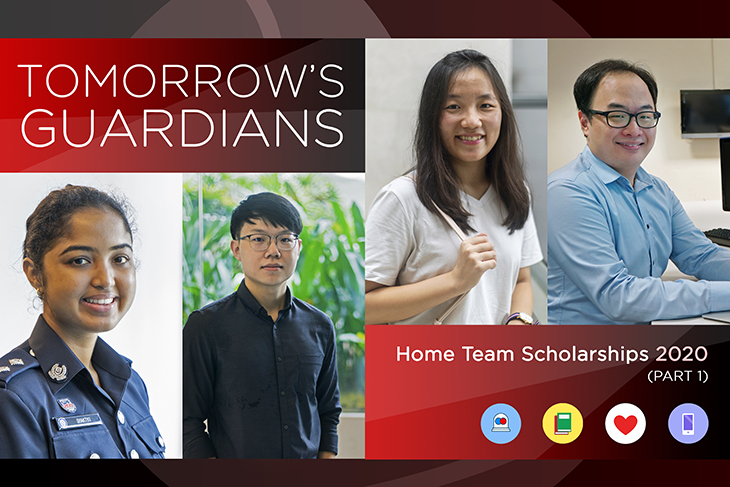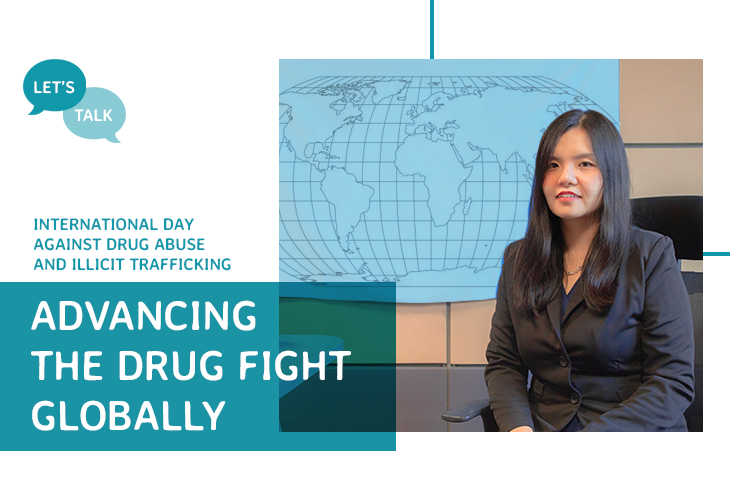
PHOTO: Joash Tan, GRAPHIC: Dayana Yakob
From tackling opium during colonial days to heroin in the mid-1970s, Singapore’s battle against drugs has been long and hard, and the fight is heating up.
At the reconvened 63rd session of the United Nations Commission on Narcotic Drugs (CND) in December 2020, member states voted on six recommendations on cannabis put up by the World Health Organisation Expert Committee on Drug Dependence (WHO-ECDD). All recommendations were rejected, except for the recommendation to remove cannabis from the list of the most tightly controlled category of drugs. 27 member states voted to support the recommendation, a mere two votes more than the position Singapore is aligned with.
“Observing the voting process was like watching the World Cup. We waited with bated breath as they counted the votes,” recalled Chew Wan Lin, Deputy Director of Transnational and Financial Crime at the International Cooperation & Partnerships Division (ICPD) of the Ministry of Home Affairs.
“We were disappointed when the votes were so close.” she said as she and her team followed the proceedings that were live-streamed.
A Turning PointWith increasing liberal attitudes towards drug consumption especially in the Western countries, the move to loosen controls on cannabis sends a wrong signal that cannabis is less harmful than before.
However, the outcome only served to spur Wan Lin and her team, and strengthened their resolve in preparing Singapore’s bid for the CND membership for the term 2024 to 2027.
“This was when we realised that while our approach of lobbying member states to align with our position had worked well in the past, circumstances have changed, especially with the growing economic and political push for cannabis liberalisation in some parts of the world,” said Wan Lin, a Commercial Affairs officer by training who now helms the financial and transnational crime portfolio since 2019, and certainly not one to shy away from challenges.
“As the issues discussed at the CND become more hotly contested, every vote counts and being a voting member gives us the ability to make a more direct impact in that decision-making process. Having a greater say as a CND member will allow Singapore to advance our interests in the global arena.”
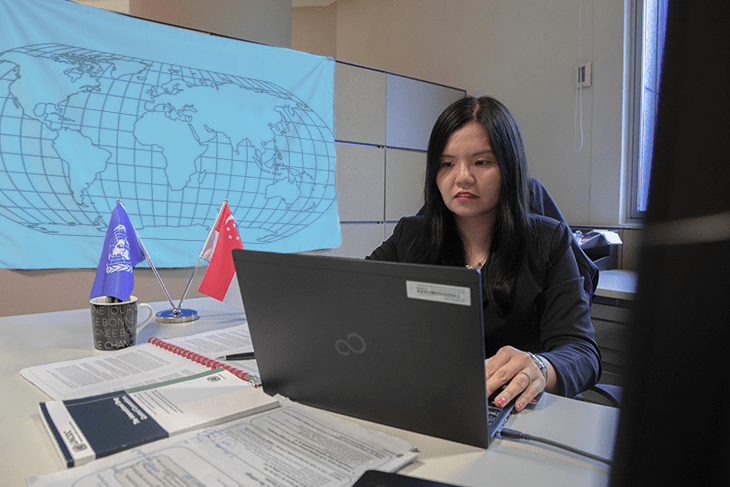 Fighting for Singapore on the International Stage
Fighting for Singapore on the International StageWhile she has 15 years’ experience fighting commercial crime, Wan Lin’s latest posting has brought her to another fight – for Singapore’s interests on the international stage.
Besides drug issues, Wan Lin also handles financial and other transnational crime such as money laundering, terrorism and proliferation financing under the Financial Action Task Force (FATF) where her team aims to build a credible voice and enhance Singapore’s reputation as a principled, constructive and pragmatic country.
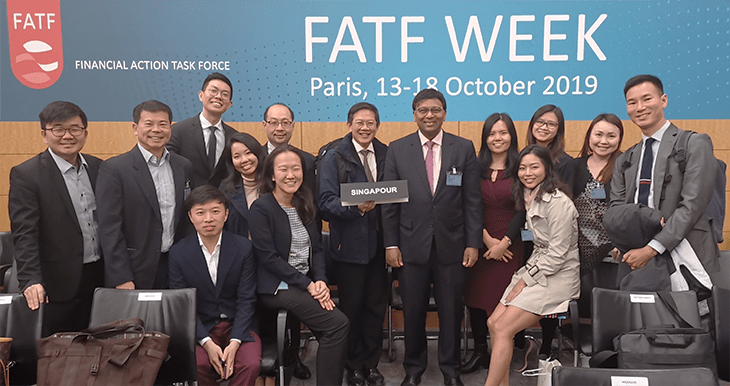
Singapore Delegation at the FATF Plenary in Paris, October 2019. PHOTO: Chew Wan Lin
Previously, Singapore sought to reject the WHO’s recommendations on cannabis by sharing their research findings on drug trends at the CND, engaging with foreign counterparts and political office holders, and pitching the country’s viewpoints with member states.
Prior to the voting at the CND, Wan Lin’s team had worked with various government agencies on a policy paper to explain Singapore’s position, actively distributing the paper and engaging foreign counterparts.
Surprisingly, Singapore’s arguments against the WHO’s recommendations on cannabis were adopted by some countries in their interventions at the CND.
“This was not an easy task - from pushing our messages across, to engaging some of the countries whose positions are totally different from ours,” she admitted. “But it was certainly satisfying to have caught the attention and support of some countries in rejecting WHO’s recommendations in loosening controls on cannabis.”
Since losing the fight narrowly, Wan Lin’s team has come up with a multi-pronged approach to develop evidence-informed and effective global drug control policies.
They have been working even closer with the Central Narcotics Bureau, Health Sciences Authority and the Singapore Prison Service to promote and share an evidence-informed and multi-stakeholder approach to preventive drug education, rehabilitation and reintegration, and our scientific expertise in areas such as drug identification and categorising various drugs under the international drug control schedules.
Seizing Opportunities Amid ChallengesWith about ten months left before the UN Economic and Social Council (ECOSOC) votes for the next batch of CND member states, Wan Lin’s team is intensifying their lobbying efforts to reach out to every ECOSOC member.
“While most of our foreign counterparts have not committed to any position at this stage as it is still early, our team is putting in our best effort to secure the membership,” she said.
“There will be delegations who may not support us due to our tough stance on drug abuse and death penalty. Nevertheless, it is important to engage them to hear their views so that we can better formulate our counter arguments.”
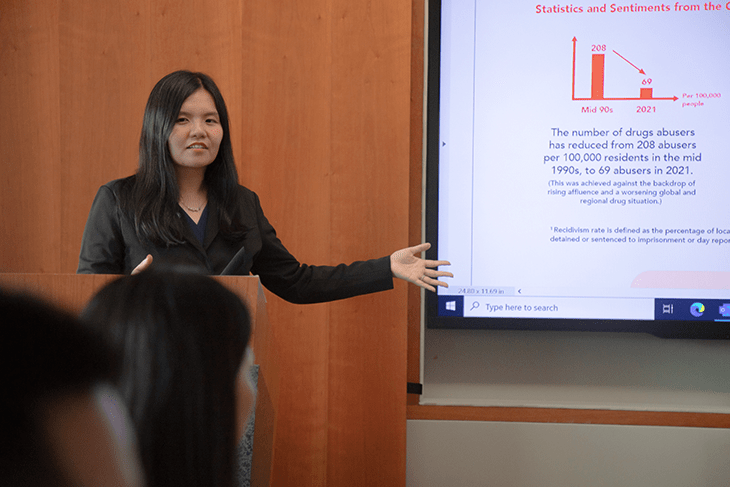
During COVID-19, Wan Lin and her team had to get creative as meetings had gone virtual with air travel grounding to a halt.
Her team has now become “experts” in planning for and setting up virtual meetings, paying attention to every detail such as the placement of the camera, backdrop and Singapore flag and the speaker’s eyeline.
Looking on the bright side, Wan Lin said: “Covid-19 has helped us in reaching out to more countries virtually to grow our networks. This was definitely one silver lining in the pandemic.”
A Balancing ActLike our Olympic athletes, it is no easy stint flying Singapore’s flag high in diplomacy. Negotiating with foreign counterparts to safeguard Singapore’s interests, navigating complex issues, and handling multiple deadlines all at once are not a walk in the park, Wan Lin admitted.
Furthermore, meetings with international organisations based in Europe are often conducted after office hours and often, into the wee hours.
With such irregular timings, the mother of two is grateful to her husband for taking care of their kids. “His help is critical in keeping them occupied so that they will not be banging the door demanding my attention when I’m having meetings.”

“Once, I tried to explain to my four-year-old daughter about money laundering and she thought it was “mama laundry” – that I was washing clothes,” she laughed.
Though it may be a tough balancing act, Wan Lin treasures the experience. “I learnt so much about analysing and dealing with different personalities on how to best negotiate with them to advance our interests,” she said. “This journey in the Home Team has also taught me that there’s still some good in this world that is worth fighting for.

“Most importantly, aspiring to be a good role model for my kids motivates me to do well in my career as I know they are watching, hearing, and following my behaviour, attitude, in everything that I do.”
International Day Against Drug Abuse and Illicit Trafficking (or World Drug Day)By resolution 42/112 of 7 December 1987, the United Nations General Assembly designated 26 June as the International Day Against Drug Abuse and Illicit Trafficking to express its determination to strengthen action and cooperation to achieve the goal of an international society free of drug abuse. Read the
statement by Mrs Josephine Teo, Minister for Communications and Information and Second Minister for Home Affairs, at the 65th Session of the Commission on Narcotic Drugs in Vienna, Austria, to reaffirm Singapore’s commitment to address the drug problem.







